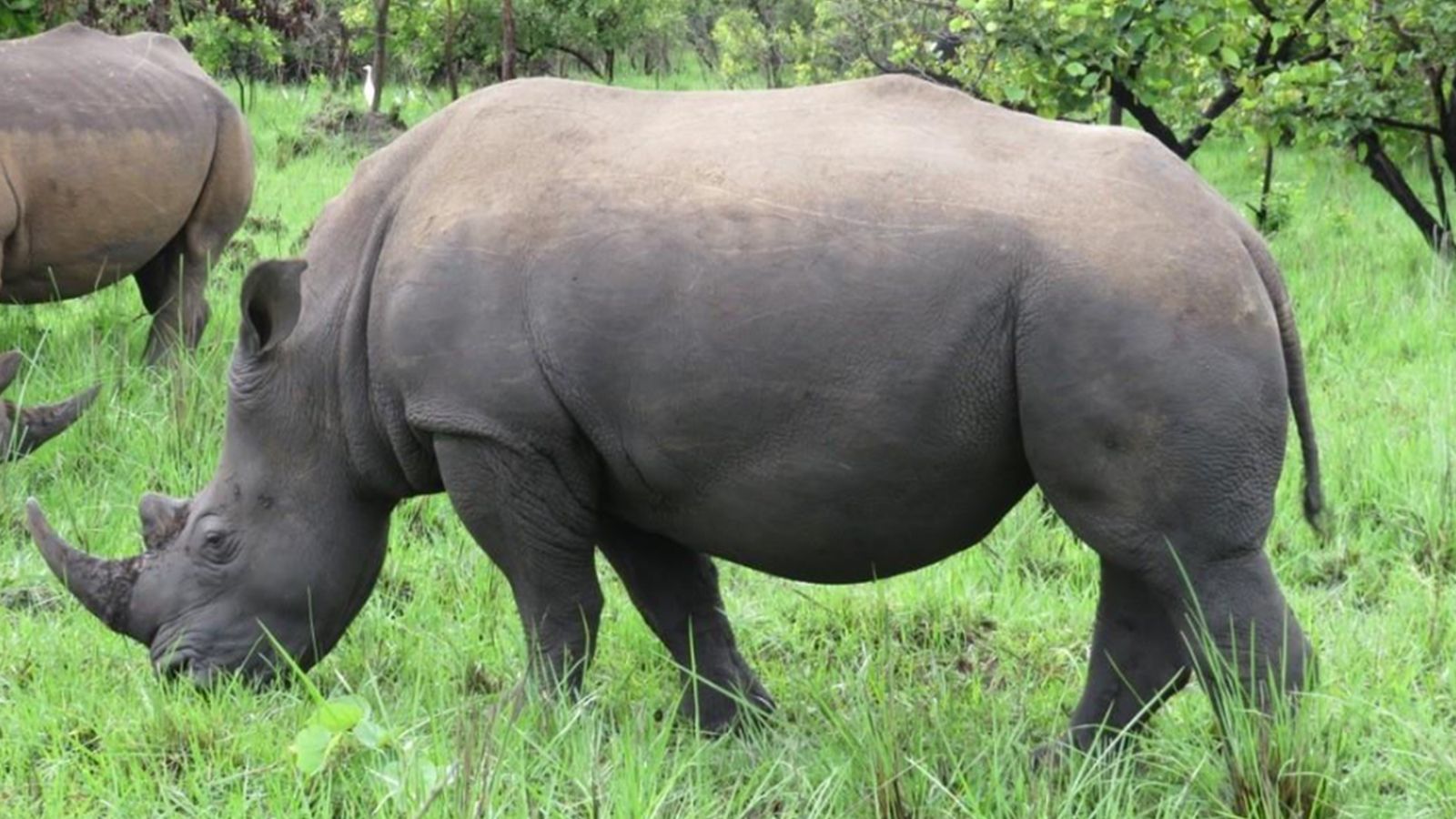Can bringing back rhinos to the African savanna help fix the scorching of the planet?
An intrepid Hunter College professor is trying to find out.
Jessica Rothman, the director of Hunter’s Wildlife Nutritional Ecology lab and an anthropology professor, has received a $742,526 NASA Biodiversity & Ecological Conservation grant to study the restoration of the wild rhinoceros to its habitats in eastern and southern Africa.
Rothman will lead a team of researchers from the United States, Denmark, Uganda, South Africa, and Zimbabwe, to investigate how restoring rhinos to the savannas affects fire dynamics. The research also will determine if rhinoceroses’ effects on the ground can be tracked from space using satellites.
“This is a very exciting time because we have a unique opportunity to study the ecology of savannas before and after rhinos are introduced and track these impacts from space,” Rothman said. “It will help us to better protect the rhinos and their habitats.”
Wild rhinos have declined in Africa during the past 200 years, to about 23,000 today. Wildlife managers and scientists think that they can restore savannas by re-introducing the huge creatures, although that is a costly and risky venture. Rhinos are huge and difficult to transport, and even with years of planning, it is hard to know how they will adjust to their new habitats. Poaching remains a serious concern and, in some places, such as Uganda, each rhino will have one or two guards nearby around the clock following them to make sure they are protected.
Weighing about two tons, rhinoceroses have a substantial effect on vegetation: When they eat, they create “grazing lawns” that reduce fire by reducing vegetation overgrowth and thus the flammability of the grass. A reduction in fire can be seen from space using satellite imagery. Undergraduate students will participate in the research by helping to analyze the plants that the rhinos eat for their nutritional chemistry.
The grant underscores Hunter’s commitment to acting as an anchor institution offering high-impact research and training opportunities in the sciences.
Rothman’s main areas of interest include nutritional ecology and wildlife conservation; she directs Hunter’s Human Biology Program and is a core member of the New York Consortium in Evolutionary Primatology. She also has field research sites in two national parks in Uganda, where she serves as an honorary wildlife officer with the Uganda Wildlife Authority, the government agency that is responsible for wildlife conservation.
Rothman leads a research group of post-docs, PhD students, master’s students, and undergraduates and serves on the supervisory committees of graduate students around the globe. More than 100 CUNY students have accompanied her to Uganda learn about wildlife conservation through field courses and research programs funded through other federal grants that Rothman has received.
She has had more than 140 publications in journals such as Biology Letters, American Journal of Primatology, Behavioral Ecology and The Journal of Animal Ecology. She earned her BS, MS, and PhD in animal nutrition from Cornell University and obtained a postdoc in biology and anthropology from McGill University.


